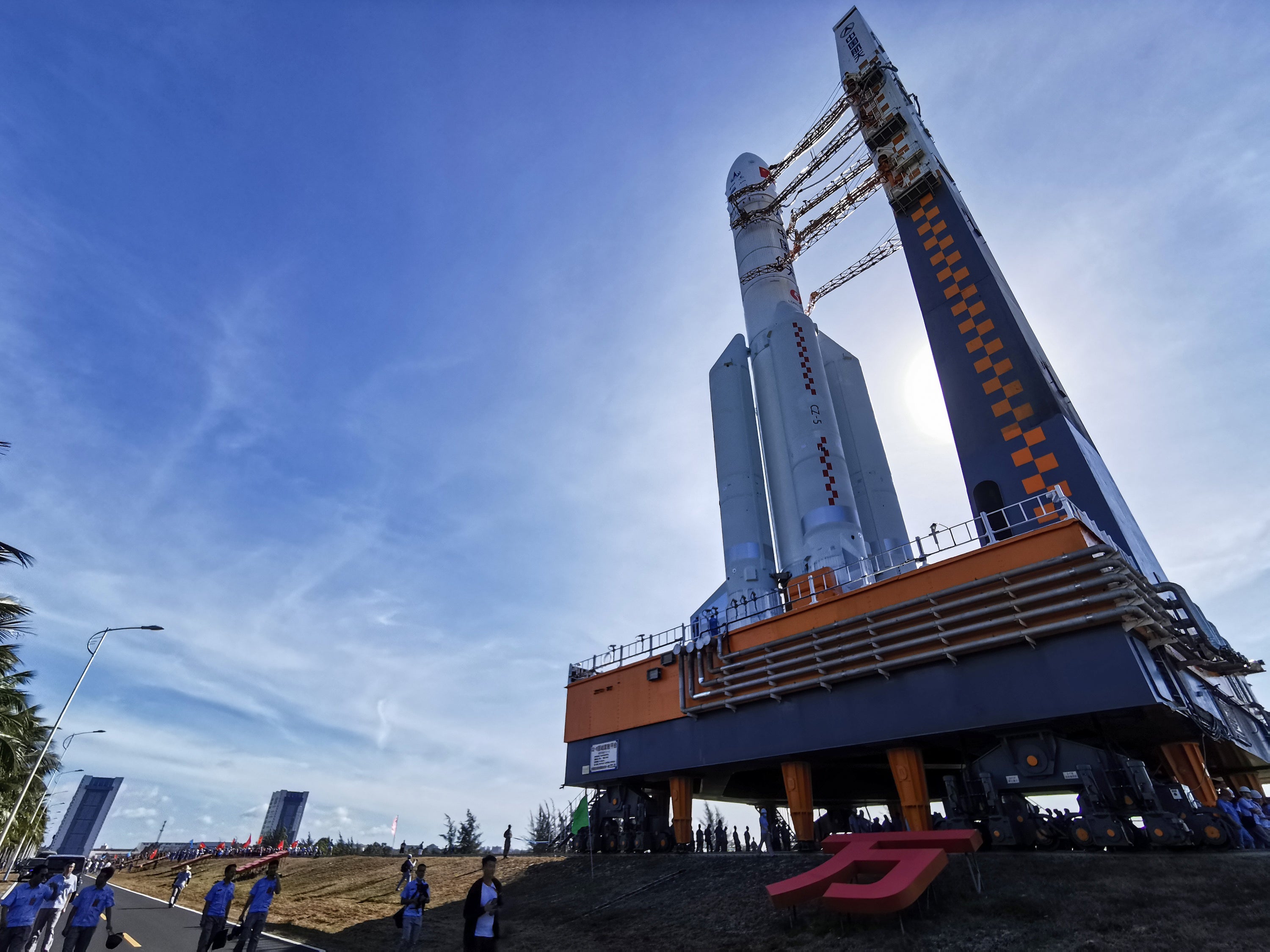One giant leap for China: Beijing gets ready to go to the Moon and bring back rocks
If successful, the mission will be the first to bring back rocks from the Moon’s surface since the 1960s and 70s.

After multiple setbacks and a previous failed launch, China is gearing up to blast a massive rocket to the moon later this month and bring back rocks to Earth .
On Tuesday, the Long March-5 rocket was moved into place ready for blast-off at the launch site in Wenchang on China’s southern island province of Hainan. The 8.2-metric-ton Chang’e-5 spacecraft will depart for the moon landing early next week. If the mission is successful, it will be the first spacecraft to bring back materials from the Moon in some 40 years.
"This is currently one of our country's most complicated and multifaceted space missions," China Aerospace Science and Technology Corporation (CASC) said.
Once on the moon, it will place a lander on the surface which will drill down two metres to collect rocks and other debris. If successfully returned to earth it will allow scientists to study lunar materials for the first time since the American and Russian missions of the 1960s and 1970s.
Chang’e-5, one of China’s most ever ambitious space missions, is expected to return to earth by mid-December.
China first put a man in space in 2003, becoming only the third nation to do so after the US and Russia.
"This is the first sample return mission from the moon involving unmanned technology. The work is more complicated than manually extracting samples from the moon," CGTN quoted Pei Zhaoyu, China National Space Administration spokesperon for the Chang'e-5 mission.
However, there are questions over whether or not it will succeed. The mission, nicknamed “Fat 5”, due to its bulky shape, failed to launch in 2017. It was rescheduled for 2018 but postponed to 2019.
China currently has a mission on the way to Mars, along with a rover on the moon's far side that is providing the first full measurements of radiation exposure from the lunar surface, information vital for any country that plans to send astronauts to the moon.
Beijing has also increasingly engaged with foreign countries on missions, although US law still prevents collaboration with Nasa, excluding China from partnering with the International Space Station.
Subscribe to Independent Premium to bookmark this article
Want to bookmark your favourite articles and stories to read or reference later? Start your Independent Premium subscription today.

Join our commenting forum
Join thought-provoking conversations, follow other Independent readers and see their replies